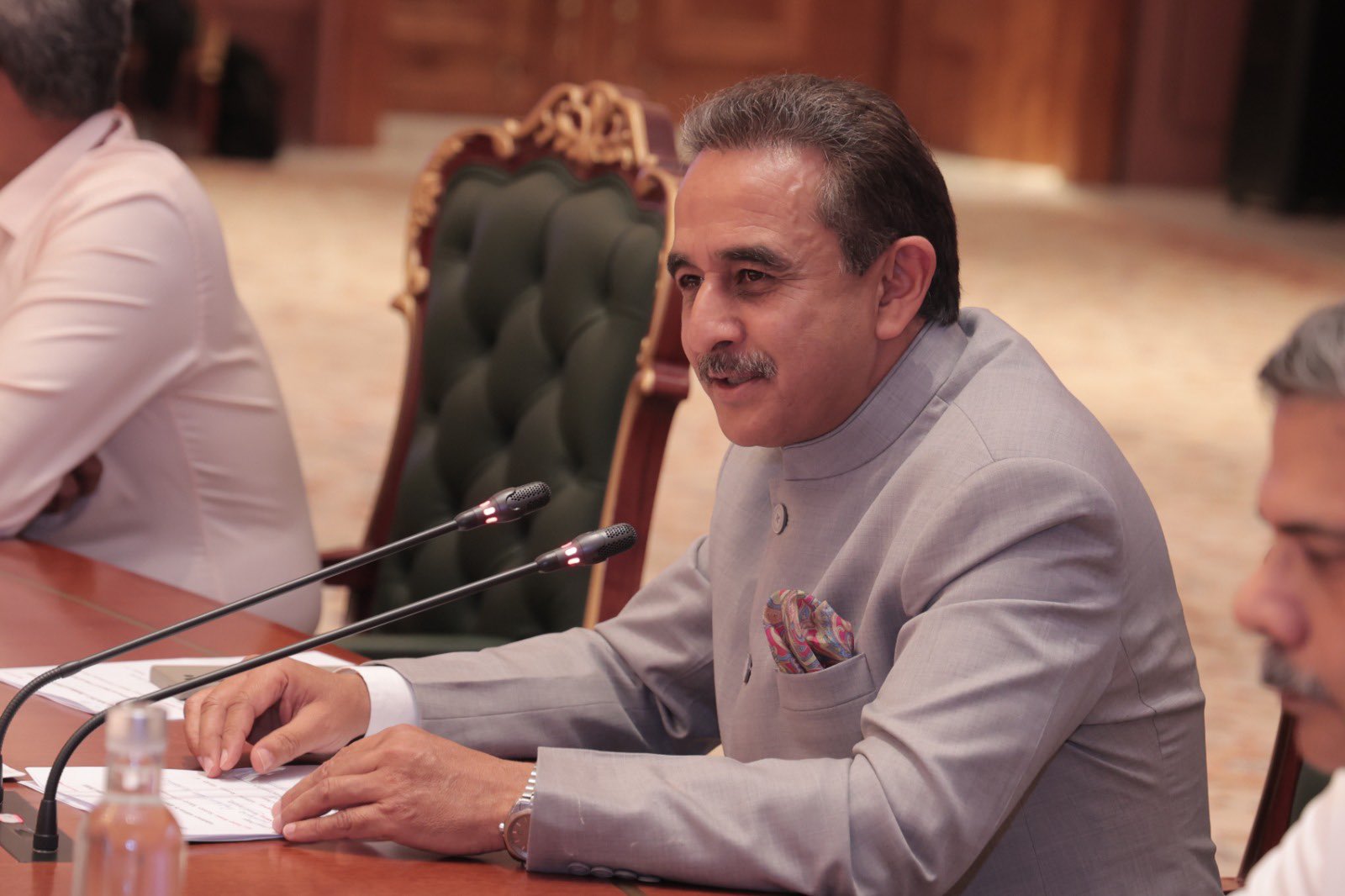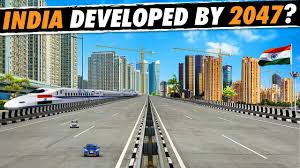Table of Contents
ToggleIndia 2047: Building a Climate-Resilient Future
The India 2047: Building a Climate-Resilient Future symposium concluded on a high note, emphasizing India’s pivotal role in addressing climate change and fostering sustainability. The event brought together influential policymakers, leading scientists, environmentalists, business leaders, and community representatives, marking a milestone in India’s journey toward climate resilience.
Key Discussion Points
India’s Progress Towards Net-Zero Goals With India’s commitment to achieving net-zero carbon emissions by 2070, the symposium highlighted policy changes and technological advancements made so far. Discussions revolved around expanding renewable energy infrastructure, including solar parks and wind farms, and promoting carbon sequestration techniques like afforestation.
Sustainable Urban Development The rapid urbanization of India has posed challenges to climate resilience. The symposium underscored the importance of creating green cities through waste-to-energy initiatives, rainwater harvesting systems, and electric mobility networks.
Agro-Ecological Innovations Agriculture being a backbone of India’s economy, panelists stressed the need for climate-smart farming. Techniques such as precision agriculture and the use of drought-resistant crop varieties were lauded for their potential to secure food systems in unpredictable climate conditions.
Community and Grassroots Engagement Rural communities and grassroots organizations played a critical role at the symposium, voicing their concerns and presenting successful local practices. Case studies from Rajasthan and Kerala showcased how traditional water conservation methods have been revitalized to combat desertification and floods.
Global Collaboration and Funding India’s efforts were also framed within the global context. The symposium explored opportunities for collaboration with international organizations like the United Nations Environment Programme (UNEP) and funding mechanisms such as the Green Climate Fund to accelerate sustainability initiatives.
Major Outcomes and Commitments The symposium resulted in multiple pledges that promise action beyond dialogue:
Implementation of carbon pricing mechanisms to incentivize industries to adopt greener practices.
Creation of a task force to monitor the integration of climate resilience in public infrastructure projects.
Launch of public awareness campaigns focusing on education about climate change impacts and solutions.
Conclusion As India prepares to celebrate 100 years of independence, the India 2047 symposium stands as a testament to the nation’s resolve to lead the fight against climate change. The participants stressed the urgency of action, echoing a shared vision for a future that harmonizes development and sustainability. By combining science, innovation, policy, and community action, India is poised to not just adapt to climate challenges but to redefine resilience for the global community.

Addressed the gathering at the valedictory session of India 2047: Building a Climate-Resilient Future conference at Bharat Mandapam. I congratulate @MOEFCC @Harvard @MittalInstitute @SalataClimate for conceptualising and successfully conducting the conference.
— Kirti Vardhan Singh (@KVSinghMPGonda) March 22, 2025
Glad to learn that… pic.twitter.com/kWTfmk0GH4
The Minister highlighted several critical action points emerging from the symposium discussions:
Strengthening Institutional Frameworks: Climate adaptation strategies must be integrated at every level of governance, including localized administrations, to ensure a coordinated and effective response.
Community-Centered Solutions: Policies need to be deeply rooted in the realities of affected populations, aligning with their specific needs, resources, and circumstances to deliver sustainable outcomes.
Balancing Immediate and Long-Term Actions: While urgent interventions like heat relief programs remain essential, systemic transformations in infrastructure, policy design, and financing are imperative for enduring climate resilience. Addressing adaptation financing stands as a cornerstone for mainstreaming adaptation in both immediate measures and comprehensive long-term actions.
Collaborative Implementation Across Stakeholders: A concerted effort among policymakers, scientists, industries, and communities is crucial to scaling equitable and robust climate adaptation strategies.
Shri Singh expressed gratitude for the unique collaboration between the Ministry of Environment, Forest & Climate Change, the Government of India, and Harvard University—represented by Lakshmi Mittal and Family South Asia Institute and The Salata Institute for Climate and Sustainability. This partnership facilitated a rich exchange of knowledge and ideas among global and local experts. He proposed that the insights and recommendations derived from this symposium should inform and reinforce India’s leadership role in tackling 21st-century climate challenges.
Over the four-day event, the symposium served as a dynamic platform for interdisciplinary knowledge sharing. Experts from diverse domains, including climate science, public health, labor markets, and urban planning, engaged in deep discussions on climate change’s impacts and the pathways to building resilience. The deliberations revolved around four core themes: Climate Science of Heat and Water and their implications for agriculture, health, work, and built environments.
The discussions on climate adaptation in agriculture underscored the necessity of evidence-based policymaking. The focus was on promoting climate-resilient agricultural practices, enhancing food security, and integrating scientific research into policy frameworks. Proposed measures included analyzing long-term climate patterns, trends in water usage, establishing local climate forums, stakeholder-centric monitoring systems, and leveraging AI-driven forecasting tools. Effective communication, advanced technologies, and aligning short-term actions with broader goals were seen as vital components for success.
Similarly, the resilience of the health sector took center stage, with a focus on quantifying the impacts of heat exposure on human health. The discussions emphasized improving data collection and analysis while ensuring local contexts are prioritized. Harnessing AI and machine learning technologies emerged as a critical tool in predicting and mitigating health risks. Participants called for strengthened public health systems, overcoming fragmentation in health data, and fostering cross-sector collaboration. Key proposals included multi-sectoral governance mechanisms, well-defined metrics, and upskilling healthcare professionals to address climate-linked health risks effectively. The deliberations emphasized leveraging existing programs and creating partnerships between stakeholders for impactful policymaking.

Adaptation in Workplaces: Addressing heat-related stress is crucial to protect workers from its adverse effects, especially women, who face unique challenges in diverse working environments. The symposium recognized best practices in technical and behavioral adaptation measures, which include enforcing occupational safety standards, creating health-focused programs, and ensuring safe civic spaces. The discussions emphasized the importance of government intervention, innovative financial solutions, and collaborations among stakeholders to enhance resilience across India’s varied geo-climatic regions. Comprehensive strategies, tailored to local work cultures and existing policies, were recommended as essential steps to mitigate climate-induced heat stress and safeguard workforce productivity.
The Role of Built Environments: The spaces we inhabit play a direct role in shaping our adaptation capabilities to climate stress. Experts stressed the need for a balanced urban resilience approach that integrates legal mandates with market-driven incentives. Special focus was placed on vulnerable populations, particularly those residing in informal settlements and slum areas, advocating localized interventions coupled with long-term urban planning initiatives. Effective urban planning policies must combine innovative design with practical operational feasibility, efficiency, and cultural relevance. Action-oriented research and interdisciplinary collaboration were identified as key to developing responsive urban frameworks that prioritize thermal comfort for all.
Expert Insights on Data and Capacity Building: Professor Caroline Buckee of Harvard University underscored the importance of granular data for identifying populations most at risk from climate change. She highlighted the challenges posed by India’s expansive health system and stressed the need for integrating health data across sectors. Timely censuses, she explained, are vital for producing accurate epidemiological estimates, while interdisciplinary approaches are necessary to address the complex interplay between climate change, health, and other sectors.
Shri Tanmay Kumar, Secretary (MoEFCC), called for strengthening local capacities to effectively combat climate impacts. He emphasized that adaptation strategies must be inclusive and community-focused, leveraging traditional knowledge alongside scientific evidence. Shri Kumar reaffirmed the Ministry’s commitment to fostering resilience through sustainable development that aligns with India’s aspirations for progress and well-being.
Collaborative Spirit of the Symposium: Prof. Tarun Khanna, Director of The Lakshmi Mittal and Family South Asia Institute at Harvard University, praised the collaborative efforts between the Ministry and academic institutions like Harvard University and The Salata Institute for Climate and Sustainability. He highlighted the diverse ideas and energies that contributed to the success of this interdisciplinary symposium.
Shri Naresh Pal Gangwar, Additional Secretary (MoEFCC), extended heartfelt appreciation to all panelists, speakers, and experts for their contributions. He urged continued focus and determination in advancing collaborative solutions to climate challenges.
Closing Message: The symposium concluded with a call for ongoing dialogue, knowledge sharing, and unified efforts. As India progresses toward the centenary of its independence, these discussions and outcomes will play a pivotal role in shaping policies and measures that support a climate-resilient future for the nation.



